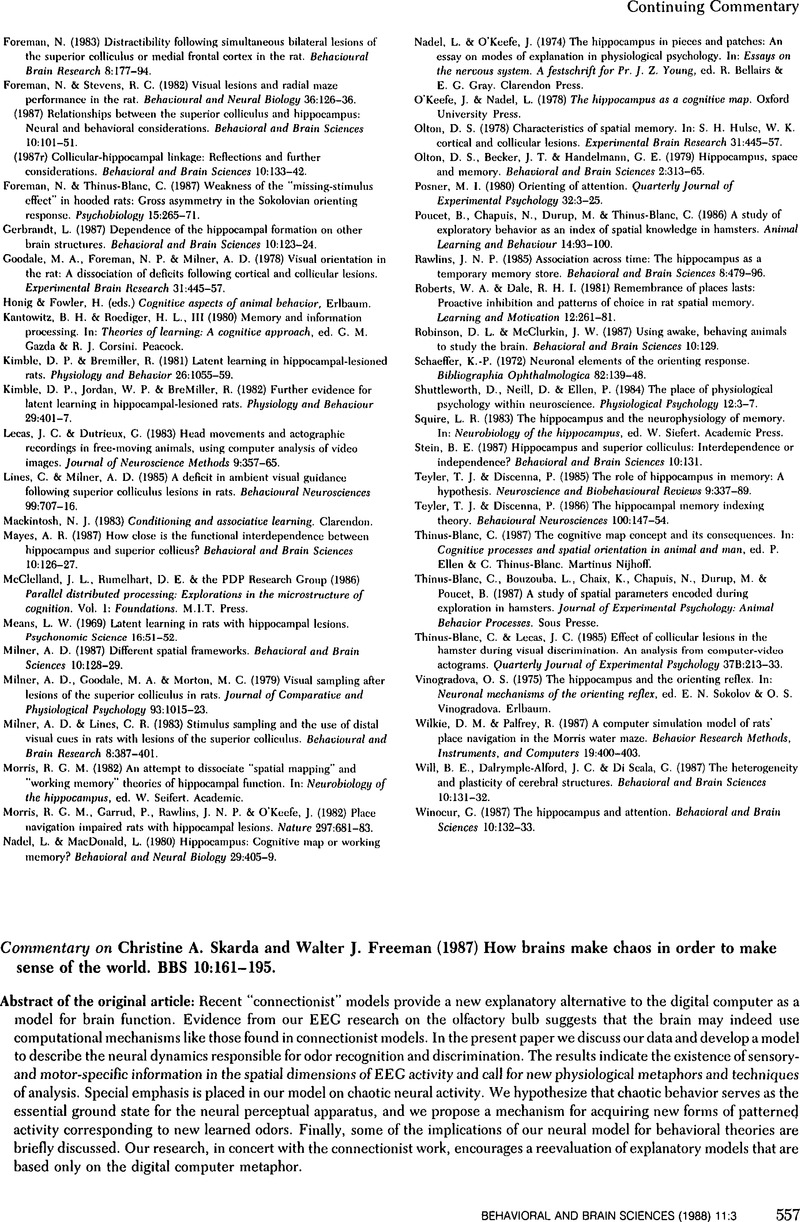No CrossRef data available.
Article contents
Research options and the “creativity” of chaos
Published online by Cambridge University Press: 04 February 2010
Abstract
An abstract is not available for this content so a preview has been provided. Please use the Get access link above for information on how to access this content.

- Type
- Authors' Response
- Information
- Copyright
- Copyright © Cambridge University Press 1988
References
Cohen, M. S. & Julian, W. H. (1987) Neural networks with a Hopf bifurcation: Slowly modulated waves. (Preprint as personal communication from Dept. of Mathematics, Box 30001, Las Cruces 88003–0001.)Google Scholar
Davis, H. T. (1960) Introduction to nonlinear differential and integral equations. U.S. Atomic Energy Commission.Google Scholar
Stowell, H. (1987). Cerebral slow waves and time parsing. International Journal of Neurosdence 32:861–74.CrossRefGoogle ScholarPubMed


